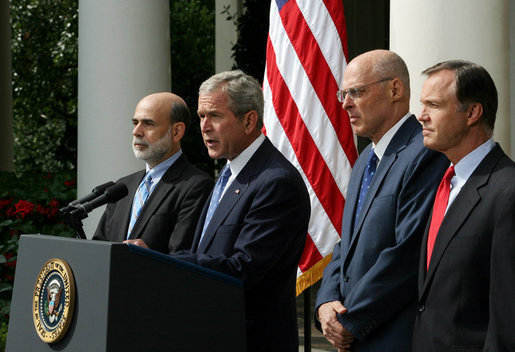The Federal Reserve and the ECB have been taking unprecedented steps to react to the financial impact of Covid-19. To frame the debate around the limits and legitimacy of central bankers’ extraordinary decisions, watch the second part of the Stigler Center mini-course by Sir Paul Tucker, who was deputy governor at the Bank of England during the 2008 global financial crisis.

This is the second of three stand-alone, interrelated seminars with Sir Paul Tucker on his latest book Unelected Power: The Quest for Legitimacy in Central Banking and the Regulatory State.

Sir Paul Tucker is a research fellow at the Harvard Kennedy School of Government and chair of the Systemic Risk Council. He previously served as deputy governor at the Bank of England and as a member of the G20 Financial Stability Board’s Steering Group, chairing a group on Too Big To Fail. In 2014, Tucker was knighted by Britain for his services to central banking.
Topics covered in the second part of Tucker’s mini-course:
- How the Principles fit (or don’t) with the constitutional structures and norms of the US, UK, and Germany
- A new non-delegation doctrine for the United States
- The difficulty the United States has in achieving incentives-values compatibility
- Examples from utility regulation, and the big problem of securities regulation
Also, check Paul Tucker’s interview with ProMarket:
“Sometimes, as a regulator, the only people that are interested in what you’re doing are the regulated.This creates the risk of cognitive capture. It needn’t be malign intent, but that can be the effect because the only people who discuss with you what you’re doing, who are truly interested in it, are from the industry you’re regulating.”
And listen to a discussion between Tucker, Kade Waldock, and Luigi Zingales in this Capitalisn’t episode:
ProMarket is dedicated to discussing how competition tends to be subverted by special interests. The posts represent the opinions of their writers, not necessarily those of the University of Chicago, the Booth School of Business, or its faculty. For more information, please visit ProMarket Blog Policy.





